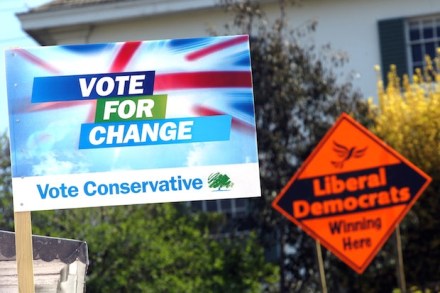The 2015 battleground: the UK’s top 10 most marginal seats
With the Tories trailing just behind Labour in the opinion polls, predictions are rife that the 2015 general election will be a bloody tough campaign. With a drop in the Lib Dem vote, the rise of Ukip and a potential swing towards Labour, it’s difficult to predict who will win. But like all general elections, a handful of marginal seats will decide who walks into No.10. Here are UK’s most marginal seats which will play a vital role next year. 1. Fermanagh & South Tyrone Held by: Michelle Gildernew — Sinn Fein Majority: 4 [datawrapper chart=”http://static.spectator.co.uk/b2hPv/index.html”] Easily the UK’s most marginal seat, Michelle Gildernew has held Fermanagh & South Tyrone





















